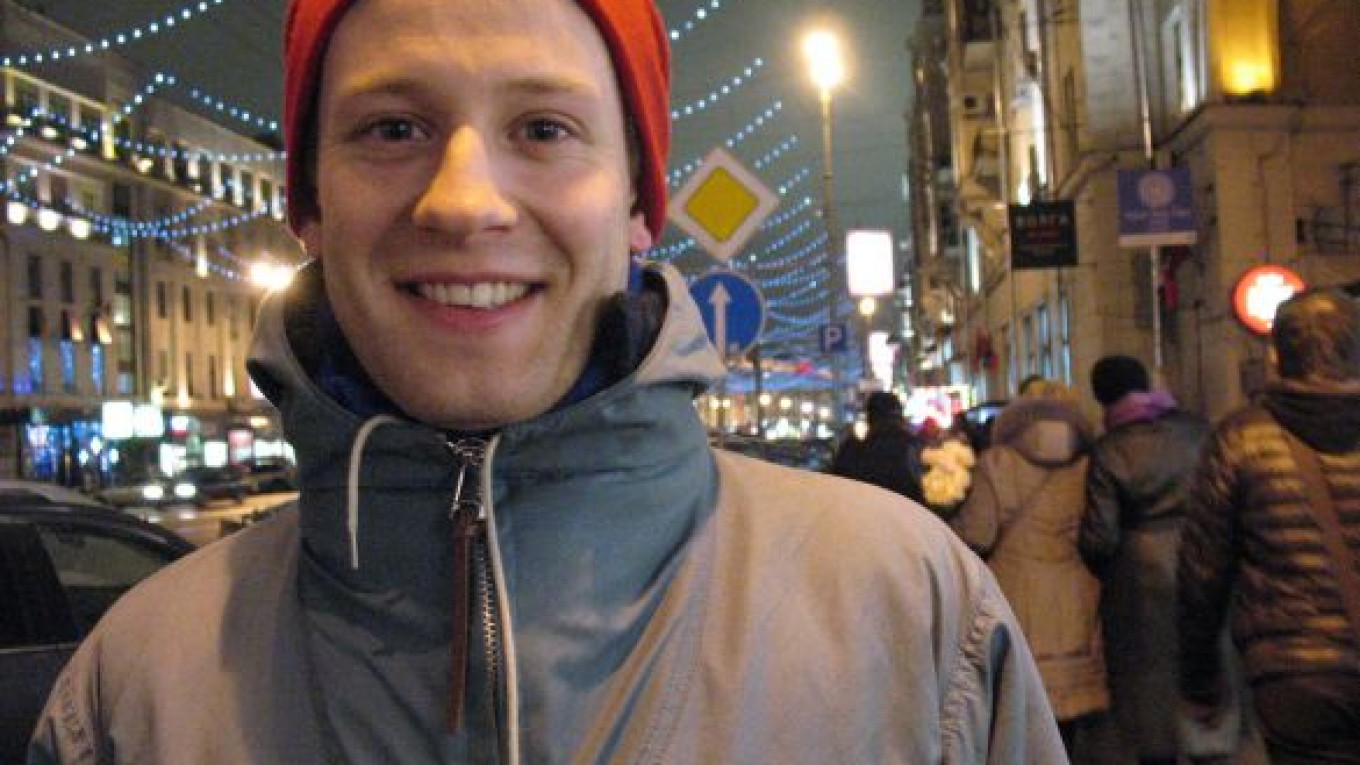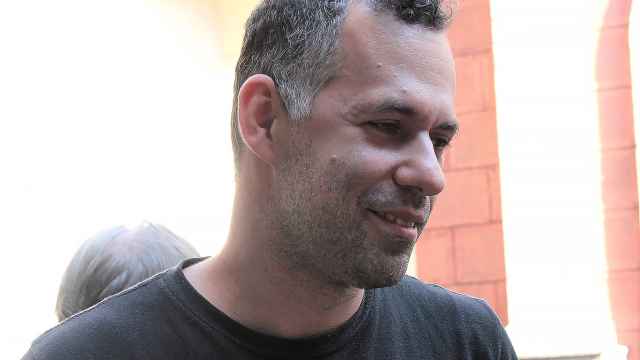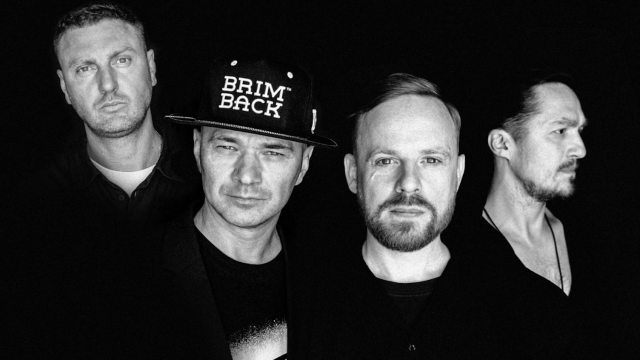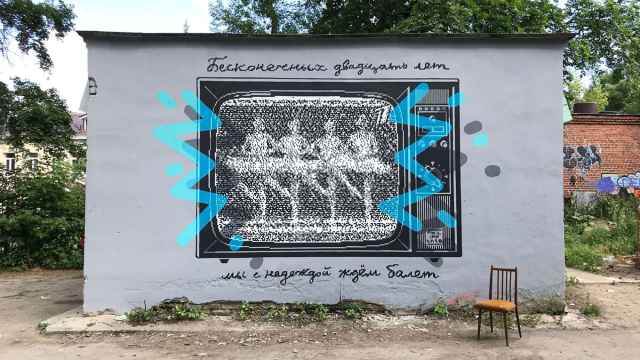It is almost a holiday fairy tale.
Just one year ago, Odin Lund Biron attended a New Year's party hosted by the Satirikon Theater. An actor in the company, he had begun to feel it was time for a change. He could hear the home fires calling.
"This was my first big adventure," he said about his six-year sojourn in Russia as we recently sat in a coffee shop on Tverskaya Ulitsa, "I didn't want it to be the last."
Biron, who is 27 years old, was born in Duluth, Minnesota. He grew up with an interest in theater and studied musical theater at the University of Michigan at Ann Arbor. A desire to do something exotic ("London seemed too accessible") brought him to the Moscow Art Theater School in the fall of 2005 to study with a group from the Connecticut-based Eugene O'Neill Theater Center. But as he was preparing to leave, a teacher approached him and asked whether he had thought about staying on. He hadn't, but the idea stuck. By February 2006 he was hanging out in Moscow, teaching English to survive, and preparing to enter a full-fledged, four-year acting course at the Art Theater.
As it happened, Biron applied to the class headed by Konstantin Raikin, one of Russia's most accomplished actors.
The young American went to the audition "shaking like a leaf" but was relieved to find Raikin "incredibly warm and friendly." Showing off a fine sense of humor and paradox, Biron performed Mikhail Lermontov's poem "No, I'm not Byron, I'm Another" and an excerpt from Samuel Beckett's "Waiting for Godot." He chose the latter because his Russian was bad, and Beckett's "silent monologue" meant he could show off his stage presence and physical abilities.
Biron not only graduated from Raikin's class in 2009, and was not only given the rare honor of being invited to join the company at Raikin's Satirikon, he was promised a top role in a new production of an Alexander Ostrovsky play that Raikin put out under the title of "Money." Biron had made extraordinary progress with his Russian by then and began getting his first rave reviews.
Cut back now to that New Year's party. It had been decided. The Russia experiment was over. America was calling. Biron's friend and colleague the director Viktor Ryzhakov was encouraging him to go. Many Americans who have studied and practiced theater in Russia have found it difficult to adjust to a totally different system and mentality upon returning to the States.
"Everybody knew. It was my plan to go," Biron now says with a warm but ironic smile.
That irony is well placed. Biron never went home, and 2011 was surely the most eventful year of his life.
Not only did he open in a central role in another new show at the Satirikon in October — "Pushkin's Little Tragedies," directed by Ryzhakov — but he joined the cast of the popular television satire "Interns."
Biron admits he doesn't even own a television set. But he is impressed with the small creative group that films and puts "Interns" on the air. They, too, appear satisfied with him, for just recently they renewed his contract for the coming season. Moreover, he has signed on to act in his first full-length feature film.
Aside from his work at the Satirikon and on various soundstages, Biron has been active in the creation of some successful independent theater productions. Working with Cazimir Liske, an American colleague and friend who studied at the Art Theater School, he has starred in productions of Shel Silverstein's children's story "Lafcadio, the Lion Who Shot Back" in Russian, and Woody Allen's "Riverside Drive" in English. Both have played at various venues around town.
"Caz was a major influence on me joining Raikin's course," Biron explains. And it was Liske who came up with the idea of doing a performance of the Shel Silverstein piece for the pair's final acting exam at the Art Theater.
"Amid all the heavy Dostoevsky things people were doing, there we were, two idiot Americans doing this ridiculous version of 'Lafcadio.'"
It was such a success that the pair realized they "had to continue doing it."
That wasn't all they did together, however. Over the summer following graduation they did the Jack Kerouac thing and hit the road in America. "We traveled all over the States by train, getting to know our homeland," Biron says. "Plus we studied our lines for 'Lafcadio.'"
That project, once it opened, brought about an invitation to perform "Riverside Drive."
"That was interesting to Caz and me," Biron declares, "because we hadn't performed in English for a long time. It was a rough process, but we all respected one another enough to keep at it. We worked on it for a year."
That little detail — rehearsing a show for a year — speaks volumes about the differences that exist between Russian and American theater. It's a difference Biron relishes from his Russian standpoint. He calls the ability to throw oneself into a project and work at it as long as it takes "one of the sweetest things about Russian theater and
culture."
"That doesn't exist in the United States, where you have your mandatory breaks and days off," he says. "I love it when artists get together and sweat and get pissed off at each other. There's something very right about that."
He didn't say so specifically, but this description may well apply to Biron's experience at the Satirikon. Raikin's theater is arguably the most intense, energetic and physically accomplished dramatic theater in Moscow, and that achievement does not come about for nothing.
But Biron himself represents another, highly intriguing aspect of the Satirikon. Over the years, Raikin has put together a collection of fine actors that now includes three nontraditional company members.
Grigory Siyatvinda, an African-Russian who spent a few years as a child with his parents in Zambia, has been a star at the Satirikon for many years. Also joining the troupe recently was Yelizaveta Martinez-Cardenas, an actress of Russian, Mexican and Sudanese descent. Martinez-Cardenas was a classmate of Biron's at the Art Theater. Biron, however, is the only troupe member who did not grow up in Russia and whose native tongue is not Russian.
The actor says he has never heard Raikin say anything about the cultural diversity he cultivates at his theater. "I think it's just interesting to him," Biron opines. "He's attracted to talent."
As for the decision to go home a year ago — and the more fateful decision not to follow through with that — Biron admits there was "an element of fear" in his planning to leave. What if he were to wait so long he could no longer fit in at home?
But with his star rising in Russia, Biron now has more immediate concerns — like how to squeeze in film shoots with rehearsals and performances at the Satirikon, while making sure to leave time for the regular shoots of "Interns." This might just be a dream life for an actor.
"Money" plays Jan. 19 and 27, "Pushkin's Little Tragedies" on Jan. 17, 21 and 28, at the Satirikon.
A Message from The Moscow Times:
Dear readers,
We are facing unprecedented challenges. Russia's Prosecutor General's Office has designated The Moscow Times as an "undesirable" organization, criminalizing our work and putting our staff at risk of prosecution. This follows our earlier unjust labeling as a "foreign agent."
These actions are direct attempts to silence independent journalism in Russia. The authorities claim our work "discredits the decisions of the Russian leadership." We see things differently: we strive to provide accurate, unbiased reporting on Russia.
We, the journalists of The Moscow Times, refuse to be silenced. But to continue our work, we need your help.
Your support, no matter how small, makes a world of difference. If you can, please support us monthly starting from just $2. It's quick to set up, and every contribution makes a significant impact.
By supporting The Moscow Times, you're defending open, independent journalism in the face of repression. Thank you for standing with us.
Remind me later.







